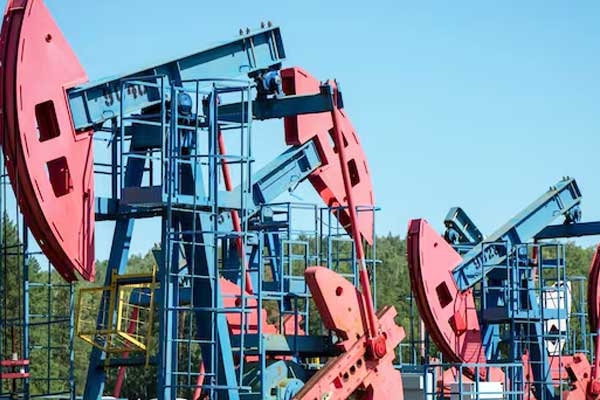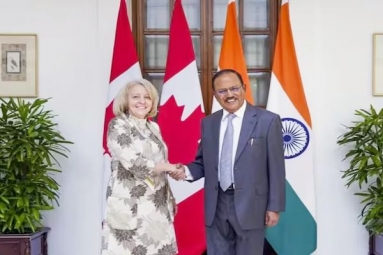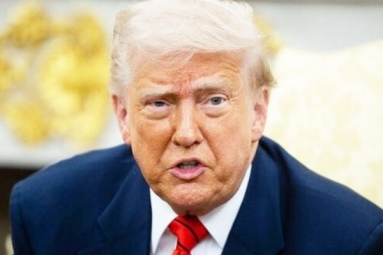
(Image source from: Cbc.ca)
President Donald Trump has claimed that India is basically supporting the "Russian war machine" and has warned that he might "significantly" raise tariffs because of New Delhi's ongoing purchases of Russian oil.
However, Trump is not alone in this viewpoint. Recently, a tricky question has been widely discussed in Western media: Is India secretly helping to fund Russia’s war efforts? This storyline suggests that India’s increasing oil imports from Russia are contributing to the Kremlin's activities in Ukraine. But a closer, fact-driven look reveals a different picture, highlighting not just media misrepresentation but also a trend of global hypocrisy.
Is Russian oil banned by Western nations?
No, it isn’t. Unlike oil from Iran or Venezuela, there isn’t a complete ban on Russian oil. The G7 and EU have instead set up a "price cap" system. This arrangement allows Russian oil to stay available on the world market to keep steady supplies while also limiting how much money Moscow can earn from it. India follows this price cap, purchasing oil below the G7’s set limit and doing so through legal and clear transactions.
So, what’s causing the global anger when India buys Russian oil?
Hypocrisy. Much of the frustration doesn’t stem from India’s actions but rather from who is taking those actions. India’s growing power in global energy markets seems to threaten existing hierarchies. While other countries continue business with Moscow quietly, India becomes an easy target for criticism. The issue isn’t about ethics; it’s about appearances and politics.
Who really are the biggest purchasers of Russian energy?
From December 2022 to July 2025, the breakdown of Russian crude exports is as follows:
China: 47%
India: 38%
EU nations and Turkey: 6% each. So, although India ranks among the top purchasers, it is not the only one. Western allies and rivals alike continue to buy substantial amounts of Russian energy.
Is India the biggest buyer of Russian natural gas as well?
Not even close. The European Union, which openly criticizes India’s oil purchases, is the leading buyer of Russian gas. In June 2025 alone, EU countries spent over 1.2 billion on Russian gas. Major importers include France, Hungary, the Netherlands, and Slovakia. Even after numerous speeches and sanctions, money continues to flow straight from the EU to Gazprom’s accounts.
What about processed oil products?
India does not purchase refined fuel from Russia. However, other countries do. Turkey, which is a member of NATO, has acquired 26% of Russia's refined oil exports. China and Brazil are also among the top buyers. Thus, the idea that India is the one enabling this situation starts to weaken when we look at the facts.
Is India breaking global laws or sanctions?
Not at all. India obtains oil through international traders rather than directly from Russian government sources. It complies with the G7 price limit, employs approved shipping methods, and insures its shipments through recognized channels. Each transaction is lawful, and all regulations are adhered to.
What would happen if India stopped importing Russian oil?
Get ready for significant consequences. Energy experts have warned that if India suddenly withdraws from the Russian oil market, it could cause global crude oil prices to soar beyond $200 per barrel. This would be disastrous, not only for India but for the entire international economy. Instead of causing turmoil in the market, India's participation has helped maintain stable prices by acting as a buffer against potential energy crises.
Is India doing this solely for its own gain?
Not exactly. India's choice to keep purchasing Russian oil has contributed to the stability of global markets. Even officials from the United States have recognized this, as shown in the following remarks.
We are pleased for India to continue buying oil - US Treasury Secretary (November 2022)
India helped stabilize worldwide markets - Biden’s Energy Adviser (2024)
India delivered. Prices didn’t rise sharply - US Ambassador Eric Garcetti (May 2024)
If India were acting purely out of self-interest, it wouldn't earn compliments from the very nation criticizing its actions.
And what about the West's hypocrisy?
Let’s look at the facts. The EU is still importing Russian crude oil through pipelines to countries like Hungary, Slovakia, and the Czech Republic. Japan received a waiver from sanctions until 2026 to maintain its Russian oil imports for northern refineries. The EU’s 18th sanctions package had exceptions for countries like the UK, Canada, Norway, Switzerland, and even the US.
So consider this: Who is really supporting whom? And more crucially, why is only one country being singled out for actions that many others are doing quietly?
India’s energy strategy isn’t just tactical. It is open, compliant, and stabilizing for global markets. The world's most populous nation has found a means to ensure its energy needs are met without violating rules.
Is India contravening international regulations or punitive measures?
Certainly not. India's oil acquisitions are facilitated via global merchants, not directly from Russian government organisations. It adheres to the G7's price ceiling, utilises sanctioned shipping methods, and secures its freight via authorised avenues. Every exchange is lawful. Every regulation is observed.
What repercussions would arise should India cease procuring Russian oil?
Prepare for significant consequences. Energy specialists have cautioned that a prompt departure by India from Russian oil markets could escalate global crude values considerably beyond $200 per barrel. This would be immensely damaging - not solely for India, but for the entire global financial structure. Rather than unsettling the marketplace, India's engagement has averted price surges by functioning as a safeguard against energy turbulence.
Is India pursuing this purely for its personal advantage?
Not precisely. India's choice to sustain acquiring Russian oil has aided in stabilising worldwide marketplaces. Even US authorities have recognised this, as reflected in the subsequent declarations.
We are pleased for India to persist in buying oil - US Treasury Secretary (November 2022)
India contributed to stabilising worldwide marketplaces - Biden's Energy Adviser (2024)
India succeeded. Values did not surge - US Ambassador Eric Garcetti (May 2024)
If India were acting selfishly, it would not be eliciting commendation from the very nation denouncing its strategy.
What about the West's inconsistent standards?
Let us examine the evidence. The EU continues to import Russian crude through pipelines to Hungary, Slovakia, and the Czech Republic. Japan secured a sanctions waiver until 2026 to continue importing Russian oil for its northern refineries. The EU's 18th sanctions package incorporated exceptions for the UK, Canada, Norway, Switzerland, and indeed - even the US.
Therefore, contemplate: Who is genuinely supporting whom? And more significantly, why is only one nation singled out for engaging in what everyone else is discreetly doing?
India's energy strategy is not simply tactical. It is open, conforming, and stabilising for global marketplaces. The world's most populated nation has discovered a method to sustain its energy supply without infringing upon the regulations.







